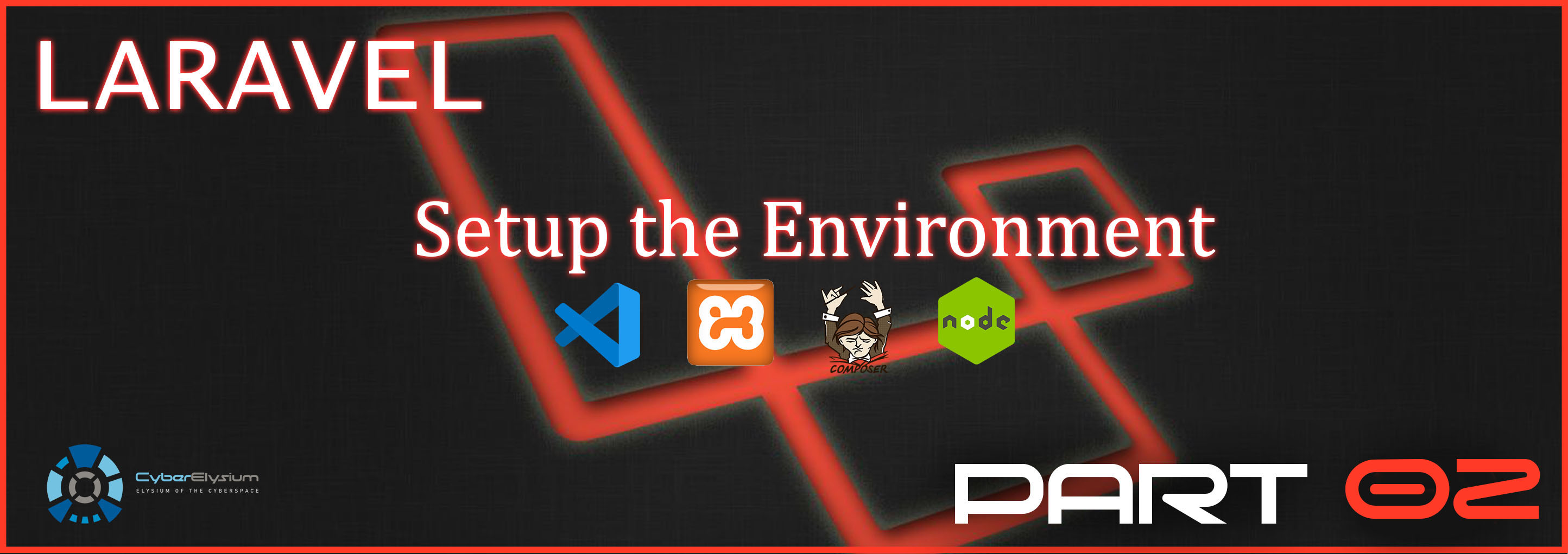
Laravel 8 PHP Tutorial Series
Tutorial 02
Setting up Environment
Link : PHP Laravel Beginner tutorial | Setup the Development Environment - Tutorial 02 - YouTube
Download Links :
VS Code : https://code.visualstudio.com/Download
XAMPP : https://www.apachefriends.org/download.html
Composer : https://getcomposer.org/download/
Node.js : https://nodejs.org/en/download/
Visual Studio Code
Visual Studio Code is a lightweight but powerful source code editor which runs on your desktop and is available for Windows, macOS, and Linux. It comes with built-in support for JavaScript, TypeScript, and Node.js and has a rich ecosystem of extensions for other languages (such as C++, C#, Java, Python, PHP, Go) and runtimes (such as .NET and Unity). Begin your journey with VS Code with these introductory videos.
More Info: https://code.visualstudio.com/
XAMPP Server
Many people know from their own experience that it's not easy to install an Apache web server and it gets harder if you want to add MariaDB, PHP, and Perl. The goal of XAMPP is to build an easy-to-install distribution for developers to get into the world of Apache. To make it convenient for developers, XAMPP is configured with all features turned on. In the case of commercial use please take a look at the product licenses, from the XAMPP point of view commercial use is also free. There are currently distributions for Windows, Linux, and OS X.
More Info: https://www.apachefriends.org/index.html
Composer
Composer is not a package manager in the same sense as Yum or Apt are. Yes, it deals with "packages" or libraries, but it manages them on a per-project basis, installing them in a directory (e.g. vendor) inside your project. By default, it does not install anything globally. Thus, it is a dependency manager. It does however support a "global" project for convenience via the global command.
More Info: https://getcomposer.org/
Node.js
As an asynchronous event-driven JavaScript runtime, Node.js is designed to build scalable network applications. In the following "hello world" example, many connections can be handled concurrently. Upon each connection, the callback is fired, but if there is no work to be done, Node.js will sleep. This is in contrast to today's more common concurrency model, in which OS threads are employed. Thread-based networking is relatively inefficient and very difficult to use. Furthermore, users of Node.js are free from worries of dead-locking the process, since there are no locks. Almost no function in Node.js directly performs I/O, so the process never blocks except when the I/O is performed using synchronous methods of the Node.js standard library. Because nothing blocks, scalable systems are very reasonable to develop in Node.js.
More Info: https://nodejs.org/en/
Facebook : https://www.facebook.com/CyberElysium
Instagram : https://www.instagram.com/cyber_elysium/
Twitter : https://twitter.com/CyberElysium
LinkedIn : https://www.linkedin.com/company/CyberElysium
Visit our website for more details: https://cyberelysium.com/

